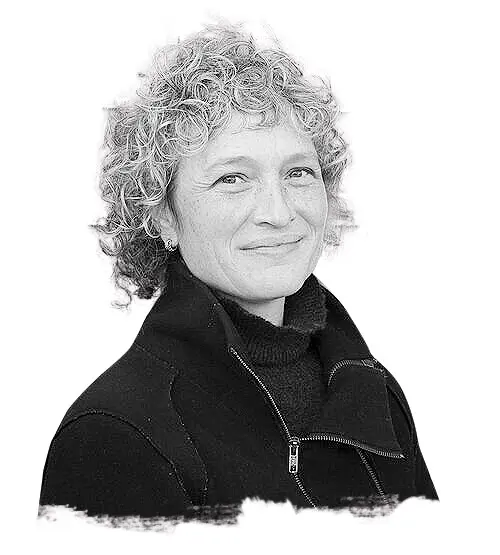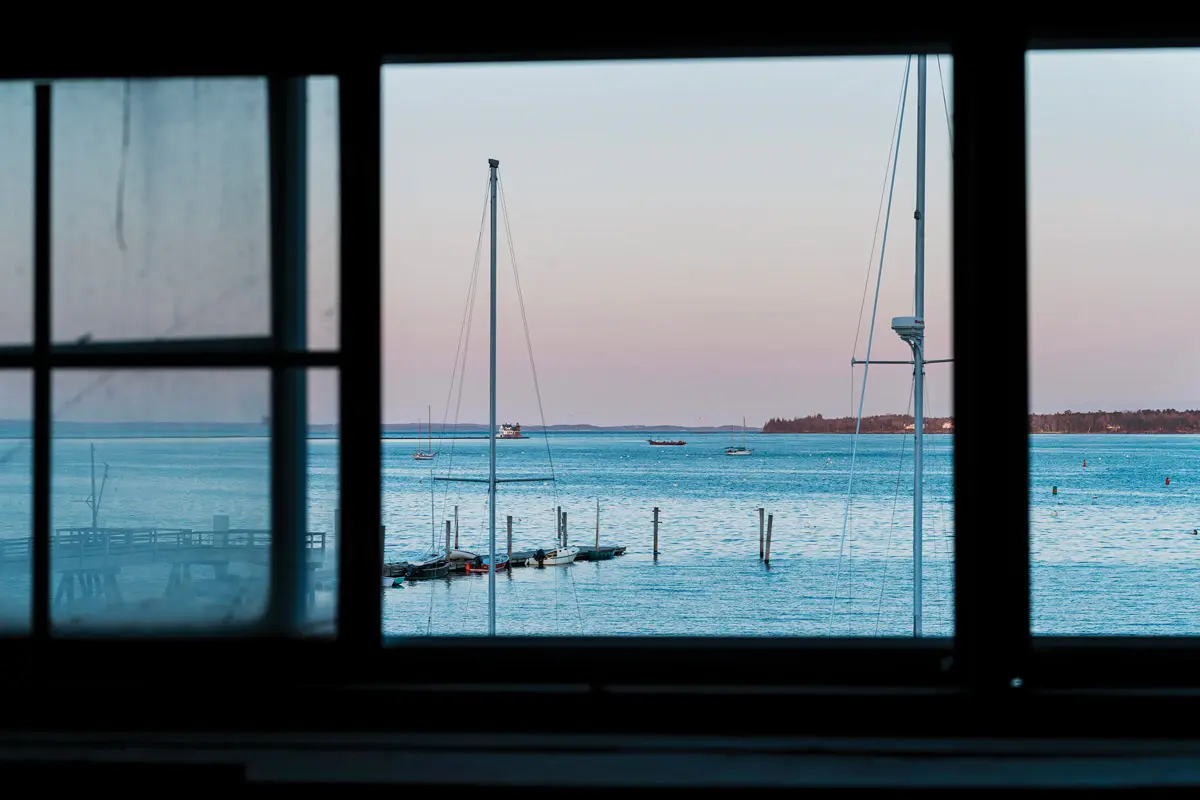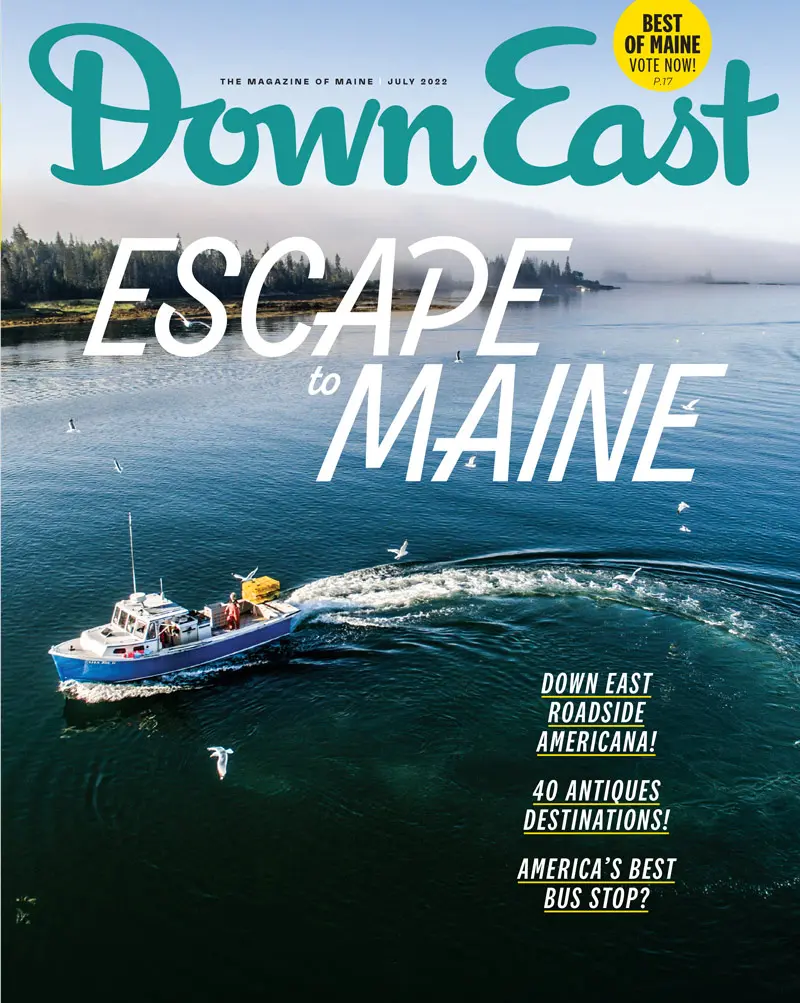
By Brian Kevin
From our July 2022 issue
Some 20 years ago, before she learned to build boats, Isabella Feracci worked in an office in NYC, at an NYU-affiliated urban-planning think tank. It’s not that she didn’t like it — she just wanted to do something with her hands. She’d been contemplating going back to school for sculpture, and during a sabbatical to think it over, she visited an uncle in Sedgwick, a carpenter who’d built his own boat and knew his way around the trades. Perhaps, he suggested, she should check out The Apprenticeshop boatbuilding school, in Rockland.
So, Feracci applied, and in 2005, she came on as an apprentice. Almost immediately, she felt at home at what she now considers a favorite place: the workbench on the shop floor, where the view out the window takes in Rockland Harbor and the lighthouse at the end of the breakwater. “I remember looking out that window when I was just starting,” Feracci says, “and thinking, ‘People are getting paid to do this?’ Where I was coming from, work involved commuting and an office and 9-to-5 hours. This was on the water, working with your body and with tools. It was just so playful and different, and I couldn’t believe it was possible.”
She stuck around after her two-year apprenticeship, eventually helping found Thomaston’s Midcoast Collaborative shared-studio complex, where she launched a custom-furniture business. She joined The Apprenticeshop’s board in 2017 and came on as executive director a year later. This month, she’s helping guide the organization through its 50th anniversary celebration. When it was founded in 1972 — by boatbuilder Lance Lee, at Bath’s Maine Maritime Museum — The Apprenticeshop helped kick off a wooden-boat revival. These days, Feracci says, the shop continues its mission of inspiring personal growth through not only its boatbuilding apprenticeships — which last anywhere from 12 weeks to two years — but also the sailing courses it’s hosted since relocating to the Rockland waterfront some 25 years ago. What these programs instill, she says, is valuable whether participants reorient their lives, as she did, or simply head back to their day jobs.
“It’s just this attitude of being able to solve whatever problem,” Feracci says. “There are these things that are put in front of you as an apprentice here where you’re like, we’re going to do what? We’re going to move that boat that weighs 5,000 pounds on rollers? We accomplish the craziest things here — and that attitude, whatever you go on to do afterwards, you take that with you.”
Headshot by Erin Tokaz




